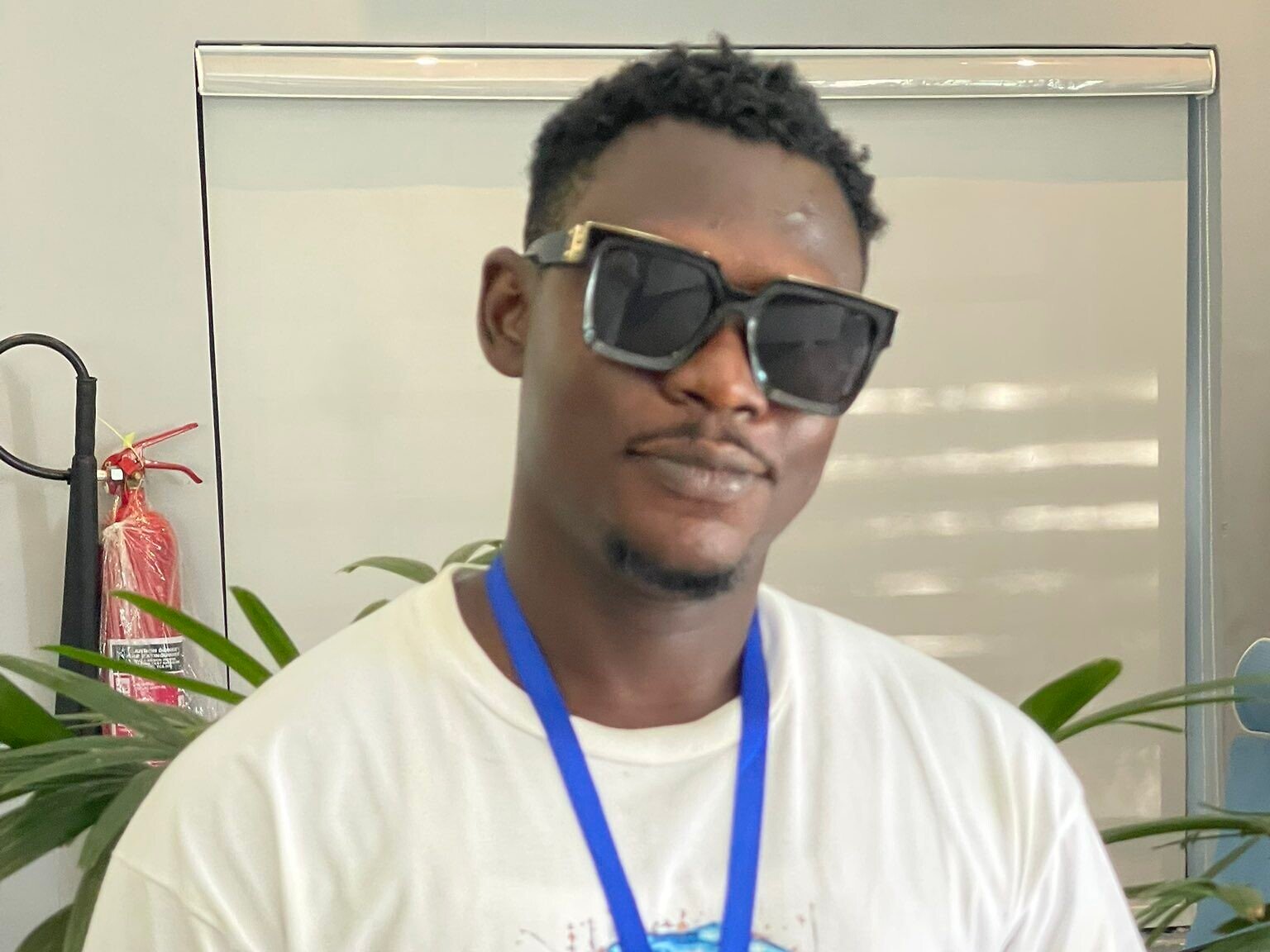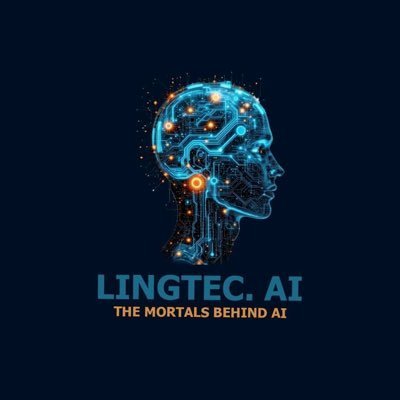In the heart of Lagos, Nigeria, a visionary entrepreneur is redefining the landscape of artificial intelligence. Abayomi Falansa, the founder and CEO of Lingtec. AI is on a mission to democratize AI for emerging markets, particularly in Africa and Asia. His remarkable journey from a product operations intern to the helm of a trailblazing startup is a story of resilience, innovation, and the boundless potential of the digital age. This Hustle Diaries episode chronicles Abayomi’s journey, showing how he’s turned challenges into opportunities and why he’s determined to make a difference in Africa’s tech world.
An Unlikely Beginning in an Emerging Field

Abayomi Falansa’s foray into technology began in 2018 as a Product Operations intern at Opera News, a time when artificial intelligence was still a whisper on the horizon, even in advanced economies. “We were training Opera News AI to crawl the best news content,” he recalls, reflecting on his first immersion into AI. Tasked with curating news feeds for users, he gained early exposure to a field that would later define his career. He didn’t know then how big AI would become, but that job sparked his interest in the field.
Next, he moved to Transsion, the company behind popular phone brands like Infinix, Tecno, and ITEL. As a Senior Product Operations Manager, he worked on making phone apps easier to use. One project was Phoenix Browser, a news app that also let users save WhatsApp statuses.
Phoenix was already popular in China, but Transsion helped bring it to Nigeria, where it garnered over 70 million downloads due to its pre-installation on phones. This showed Abayomi something about taking global tech and making it work for local people, a skill that would later become invaluable to his career.
Abayomi’s next role took him to Koo app, an Indian social media platform that gained popularity in Nigeria during Twitter’s (Now ‘X’) temporary ban under President Buhari’s administration.
As a Trust and Safety Manager, Abayomi stepped into the arena of tech policy, ensuring platform decorum and gaining insights into the regulatory challenges of digital spaces. Each job taught him something new, but his time at VeerOne AI was when things clicked and he understood. It gave him firsthand insight into the gaps in AI for emerging markets, where Western-centric models often fall short.
The Light Bulb Moment: Rethinking AI for Emerging Markets at VeerOne AI
As Head of Product at VeerOne AI, Abayomi led a team developing image-generating Large Language Models (LLMs). It was an interesting role, one he earned after starting as a Product Manager and quickly ascending due to his expertise.
Yet, amidst the cutting-edge work, he noticed a glaring gap: the models catered predominantly to Western markets. “The next generation of AI users will come from Jakarta, Nairobi, and Lagos—not San Francisco, Los Angeles, or London,” he asserts. With Africa’s population exceeding a billion and Asia’s vast untapped markets, the AI wasn’t built with them in mind.
The problem was even deeper than that: there was a scarcity of qualified data annotators and linguists to train AI models in culturally nuanced ways for African and Asian users. “We realized there was a current gap in getting qualified annotators and linguistics experts in African and Asian culture,” he explains.
Existing LLMs, he observed, often lacked the depth to reflect the societal expectations and cultural contexts of these regions. He cites an example from Twitter, where users fed Grok, X’s AI model, with inappropriate prompts. A well-trained model would deflect such requests responsibly, but the gap between trained and not-so-well-trained models was stark—a gap he aimed to bridge.
Convinced that this was a problem for the global South to solve, Abayomi launched Lingtec. AI as a side project. It was a bold move, born from the realization that Africa must forge its own path in the AI revolution. “Nobody from Silicon Valley is coming to help us, we have to do it ourselves,” he says.
From a Side Hustle to the Real Deal
Lingtec. AI’s early days were modest, but validation came swiftly through high-profile partnerships. One of its first major projects was with Uber, developing AI LLMs in Yoruba and Hausa—languages spoken by millions in Nigeria.
Soon after, ByteDance, parent company of the popular social media giants TikTok tapped LingTec to provide 80 annotators to train their AI model for a new feature aimed at enhancing user experience, a project that tested the company’s capacity and credibility.
“That was when we knew we were onto something,” Abayomi says.
Additional clients like Omega, Giantec, and Future Trans and Translated followed, cementing Lingtec. AI’s reputation as a reliable player in data annotation and language services.
These successes transformed the side project into a full-fledged startup, driven by a mission to provide quality annotation for global AI applications. To date, Lingtec. AI has engaged over 200 freelancers across various projects, with a core team of four or five full-time staff. But Abayomi’s vision extends far beyond current achievements. He’s building something far more revolutionary with LingoMarket.
How One Twitter DM Changed Everything
Abayomi’s journey to leadership is as serendipitous as it is inspiring, earning him the moniker “The Accidental CEO.” In a twist of fate, a Twitter exchange with Gurbaksh Chahal—an Indian-American tech mogul who sold his first company to Yahoo at 16 for nearly $14 million—opened an unexpected door.
Chahal, a serial entrepreneur named one of America’s Most Googled Entrepreneurs in 2016, tweeted about needing a product manager for a news app. Abayomi, who coincidentally was a mutual with Chahal in the pre-verification era of Twitter, seized the chance.

“I messaged him, pitched my experience like everyone else,” he recounts.
When he didn’t get a response for months, he assumed someone else got the job. However, nearly 12 months later, Abayomi received a private message on Twitter. It was Chahal.
What followed was a whirlwind: Chahal requested a rough Product Requirements Document (PRD), which Abayomi dashed off late one night, assuming it was just another side gig. By 3 a.m., he had seven missed calls from Chahal, who loved the PRD and offered him a role at VeerOne AI, then known as BNN. There wasn’t plenty of back and forths, no negotiation. Chahal simply notified him that an offer letter from HR would soon be sent to him.
“I Couldn’t Believe My Eyes”
“It was unreal,” Abayomi says. “I Googled him and realized he’d met numerous important people, including former U.S. president Barack Obama. I also read that he started his tech journey with Elon Musk’s ilk. There’s no way I could’ve met someone like that without the internet.”
At VeerOne AI, Abayomi thrived under Chahal’s mentorship, learning the intricacies of startups, exits, and scaling from one of Silicon Valley’s best. “I was meeting C-Suite executives and founders from my room in Lagos,” he says. As the only black person on the tech team, he stood out, linking the technical and stakeholder worlds with class.
This experience armed him with the tools and networks to launch Lingtec. AI, proving the internet’s power to decentralize opportunity.
“A guy from the slums of Ikorodu might go into cryptocurrency and become a millionaire in no time,” he marvels. “Access to opportunities and wealth has never been so limitless.”
A Founder’s Struggle: Doubt, Sacrifice, and Perseverance

Building Lingtec. AI in Africa has not been an easy feat. Abayomi describes the founder’s life as an “everyday struggle,” especially in a region where doubt looms large. “There’s always a question: Am I really doing something?” he admits.
The B2B landscape added complexity to doing business, with big tech clients occasionally delaying payments—a pain point that tested his resolve. “It’s about perseverance and conviction,” he says, detailing how Lingtec. AI adapted with clearer communication, MOUs, and improved payment strategies to mitigate such risks.
The personal sacrifices for a founder were even harder. Last December, while nearly everyone was “outside” doing ‘oblee’ in Lagos, Abayomi was on his laptop, coordinating with clients from Beijing to the UAE. “I usually go to Ibadan for New Year’s, but for the first time in my career, I stayed in Lagos because of the TikTok project,” he says. Personal relationships took a hit, but he kept going because he knew the work mattered. “Livelihoods are at stake. We’re creating jobs for people who need them, jobs that could change lives,” he insists.
LingoMarket- Building the Future of AI for Emerging Markets
Abayomi sees Lingtec. AI as more than an agency for data annotators. He describes it as a product-led startup with its sights set on LingoMarket, a data annotation and language service marketplace launching by September’s end.
“It’s like Upwork, but for data annotation and language services,” Abayomi explains.
Annotators will connect directly with clients, earning in dollars and tapping into global opportunities. With a wallet feature and end-to-end functionality, it aims to be the world’s first comprehensive marketplace of its kind—a claim Abayomi invites fact-checking, noting that even Scale AI’s offerings fall short of this vision.
The potential impact is staggering. A two-year project with OpenAI, awaiting the green light, has over 500 annotators lined up for a single initiative. “Our target is 1,000 freelancers by 2026, but we’ll definitely surpass that,” he predicts confidently. Beyond revenue, the social mission drives him:
“Imagine a developer in Yaba earning $2,000 a month from his bedroom, sending 200,000 naira to his parents, paying for his siblings to attain quality education so they can also add value to their society. We’re changing destinies.”
A Legacy in the Making
Abayomi’s story is proof that visionary leadership can shape the future of AI for emerging markets, creating a lasting impact in the process. From a small side project to a startup that could hire thousands, he’s proving Africa can lead in tech. “We can’t fail,” he says. “Too many people are counting on us.” As AI grows, Abayomi and Lingtec. AI is making sure Africa isn’t left behind, ready to shape the future.







No Comments